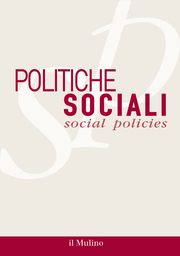Costalli, S., Guariso, D., Justino, P., & Ruggeri, A. (2024). The Violent Legacy of Fascism: Evidence From Italy. Comparative Political Studies, 0(0). https://doi.org/10.1177/00104140241252089
Can legacies of fascism threaten democracies with political violence? Democracies aim to peacefully manage incompatible interests in a society. Yet, few democracies avoid violence altogether. Legacies of fascism may re-emerge because local networks can transfer their ideational tenets – supremacist identities and anti-democratism (know what), violent practices (know how), and paramilitary networks (know whom) – to the new generations. Thanks to an original subnational dataset, we study if the Italian fascist movement that emerged in the 1920s affected political violence in the 1970s–1980s. The local strength of the fascist party before the institutionalization of the fascist regime predicts neofascist political violence more than forty years later. New catalysing events facilitate the resurfacing of local fascist legacies: when a Minister of Interior is appointed, we observe higher levels of neofascist violence in provinces where the early presence of the fascist party was stronger.



